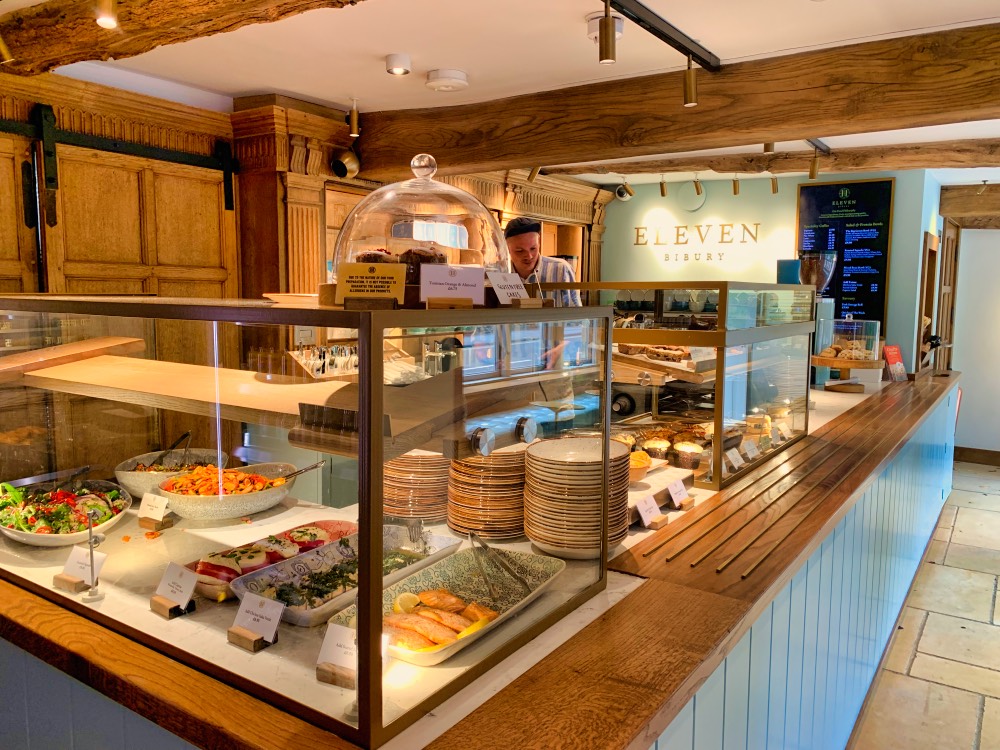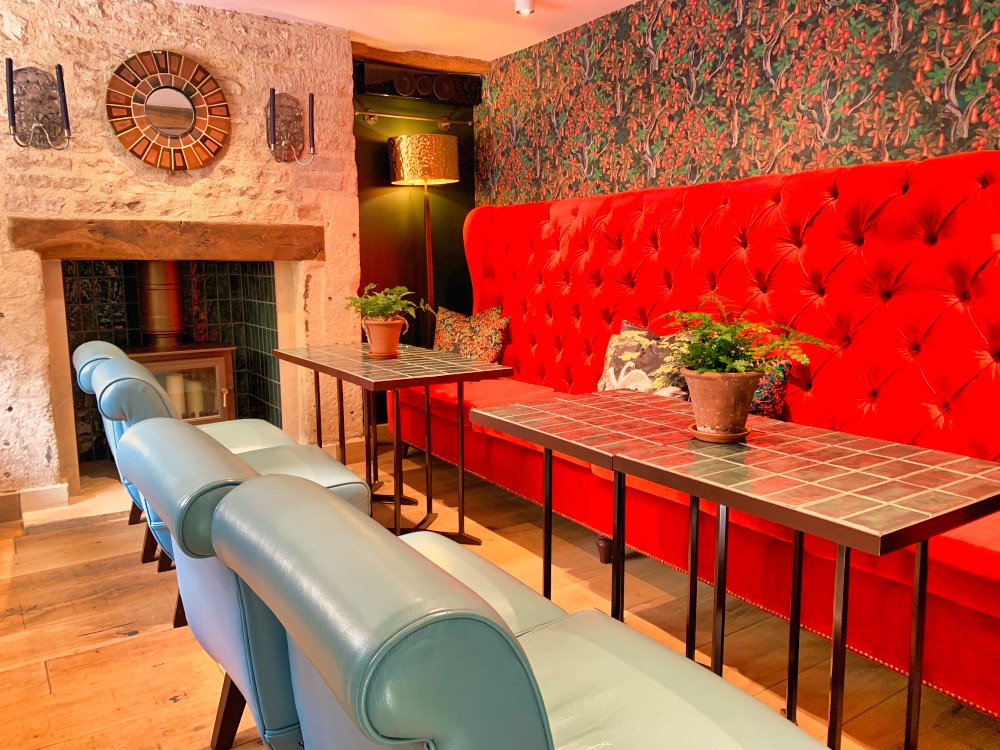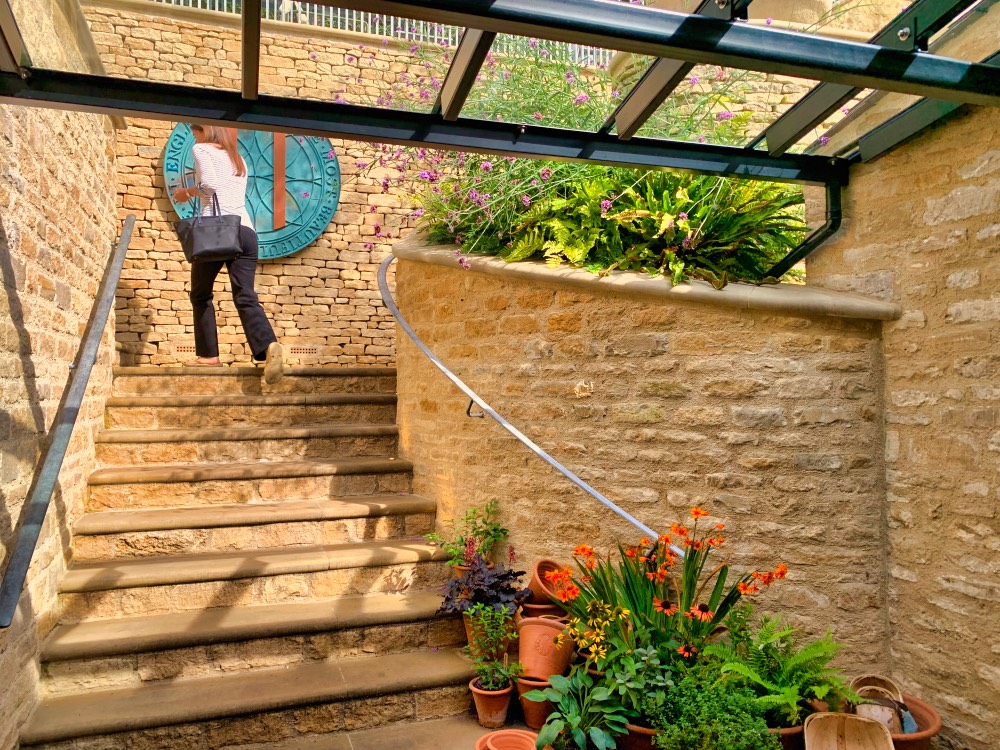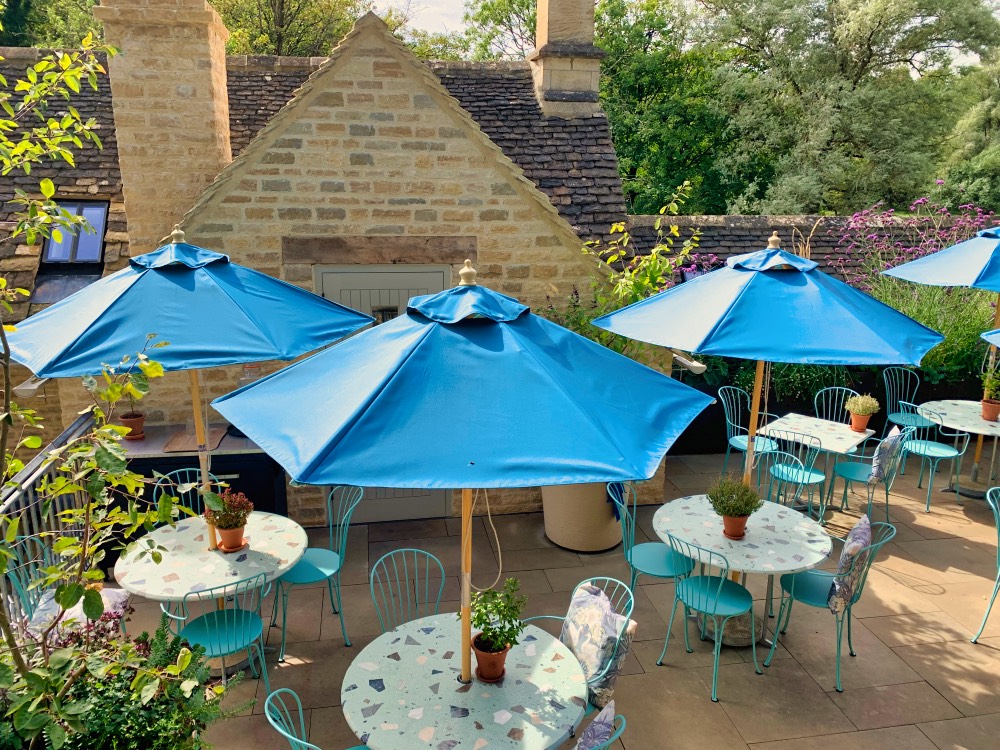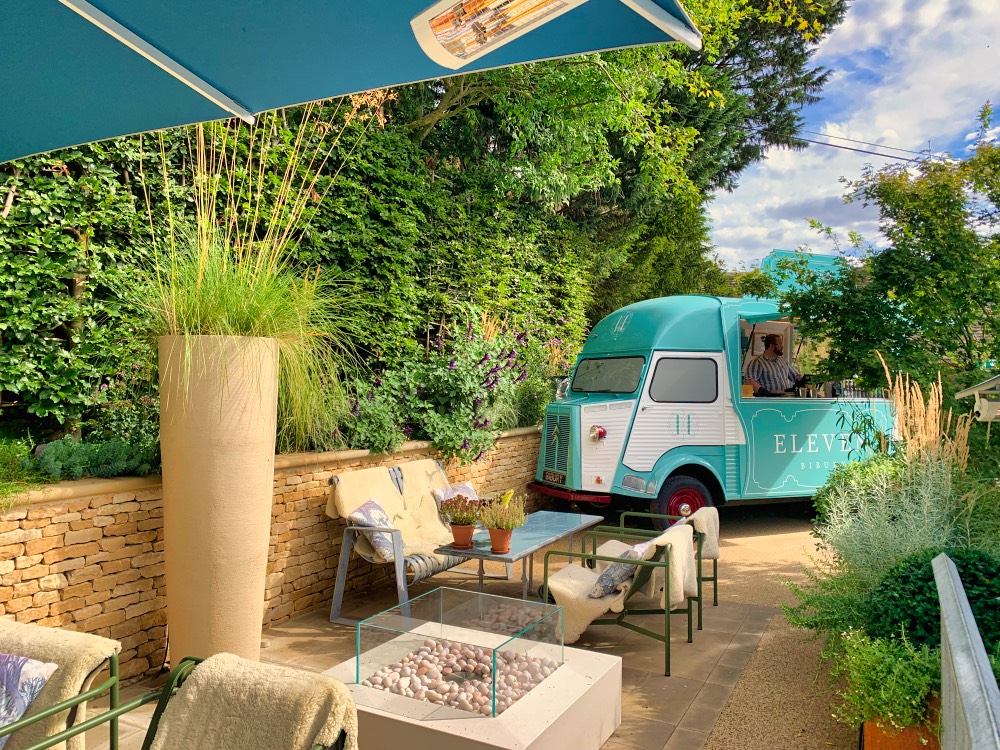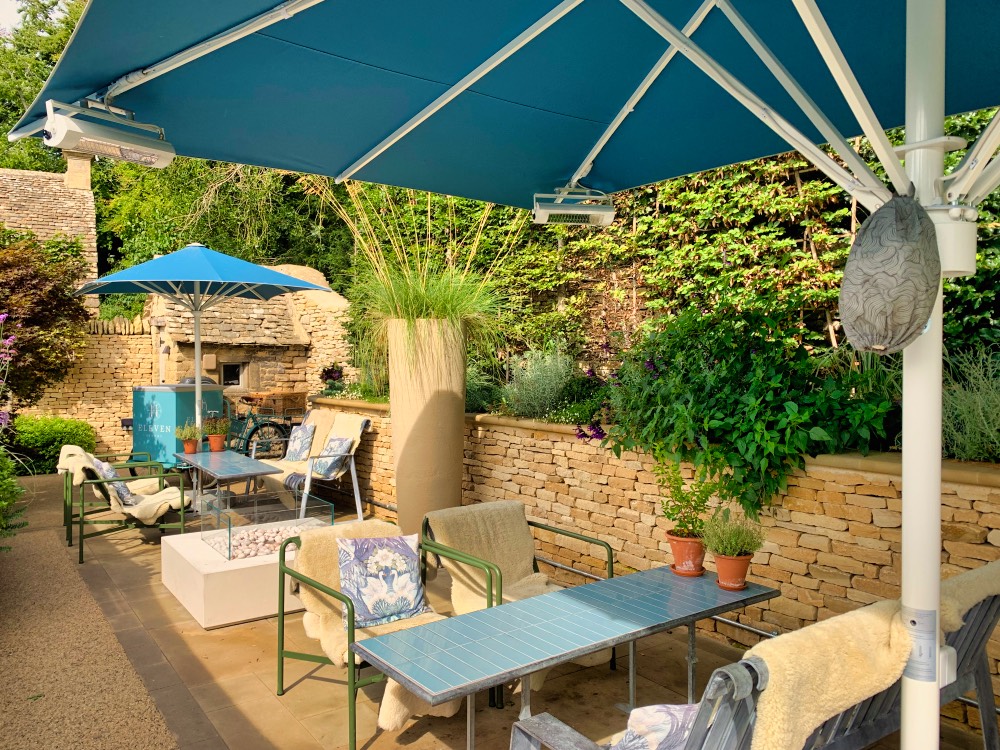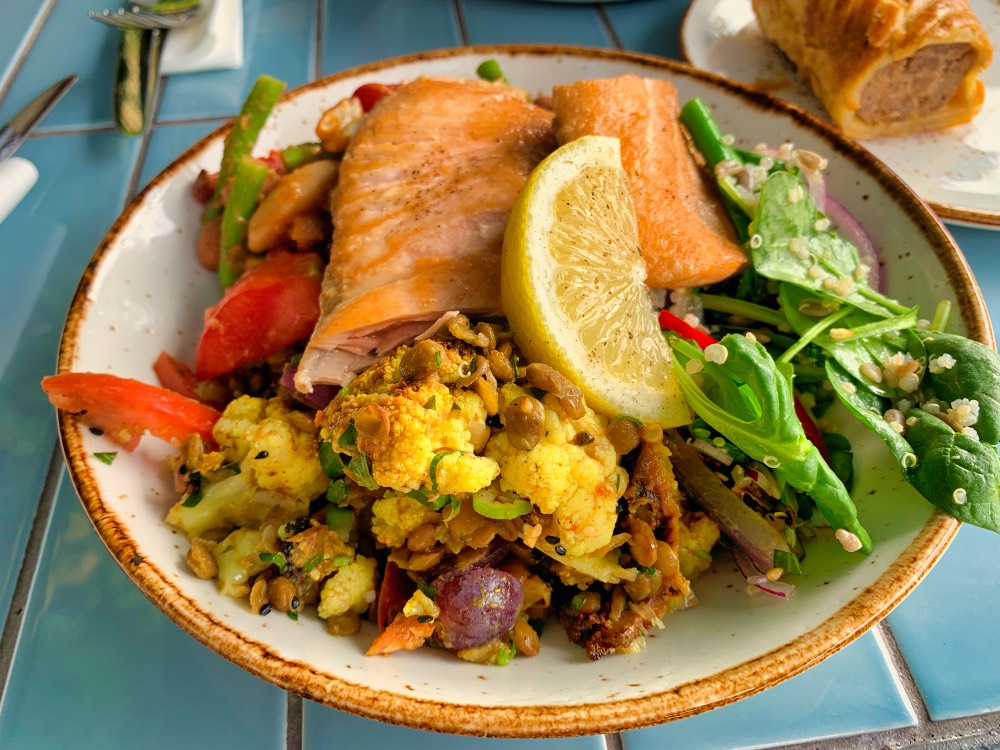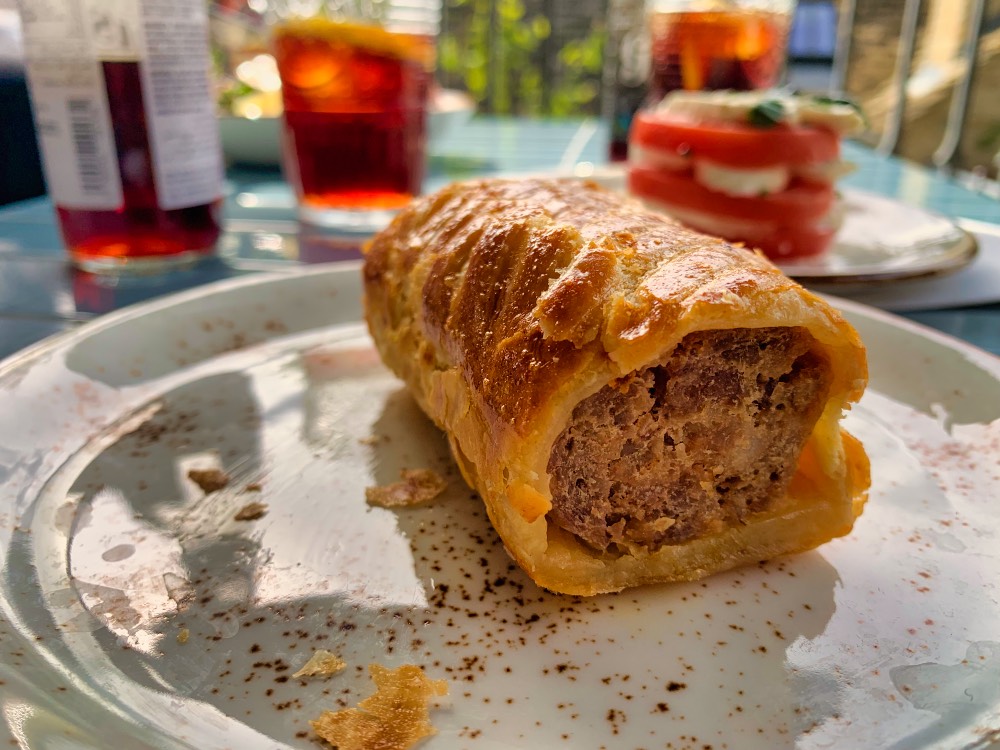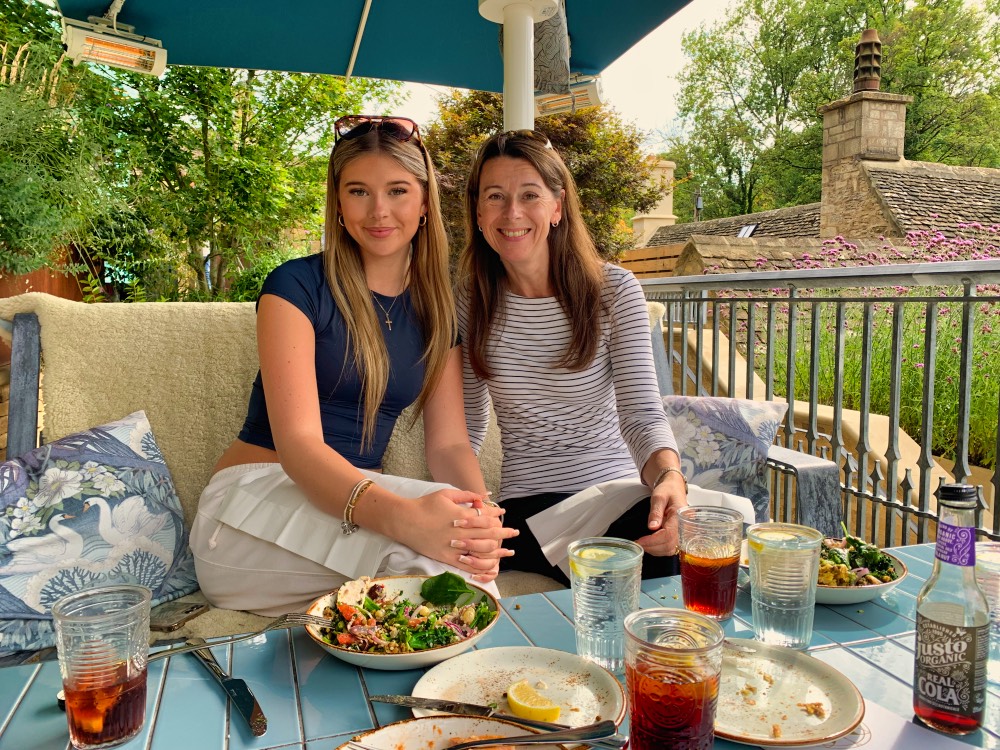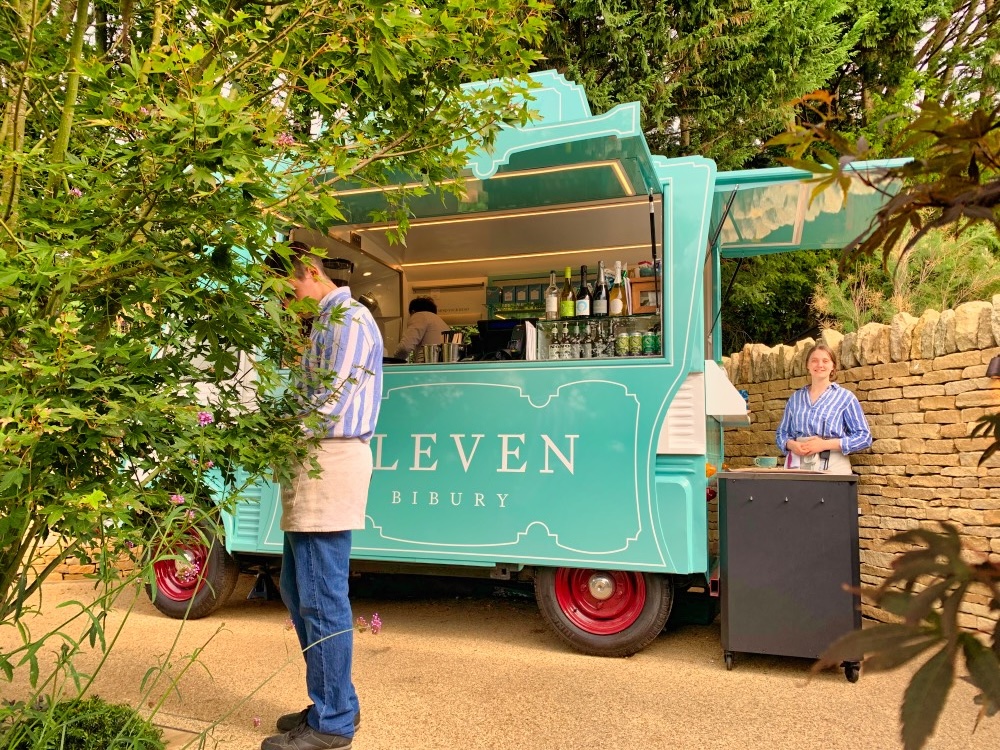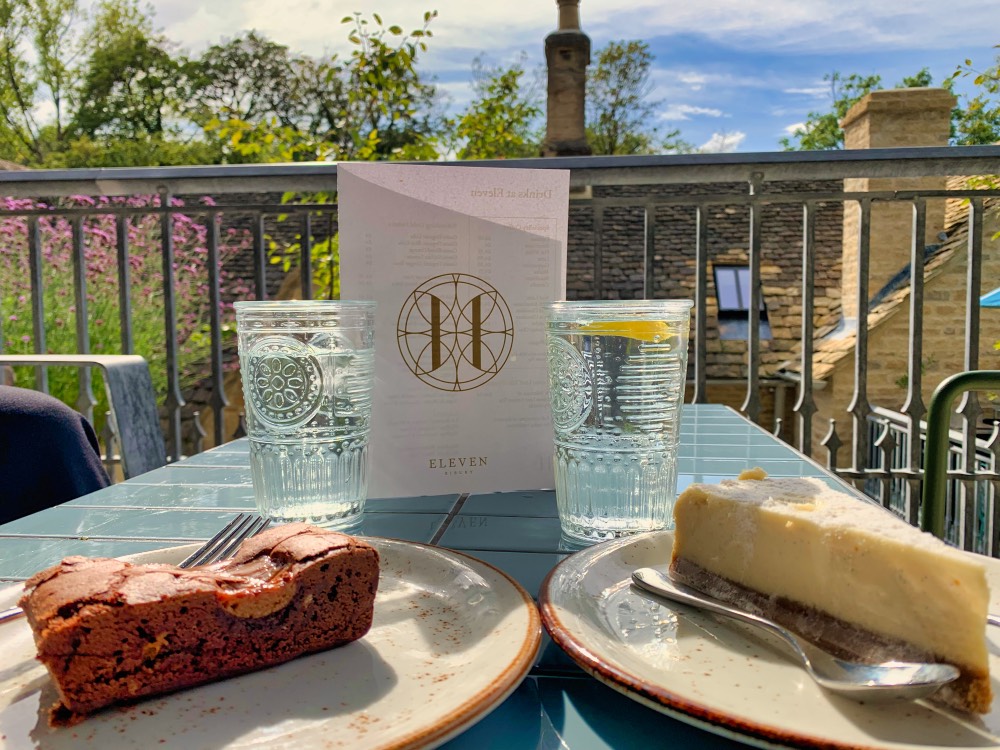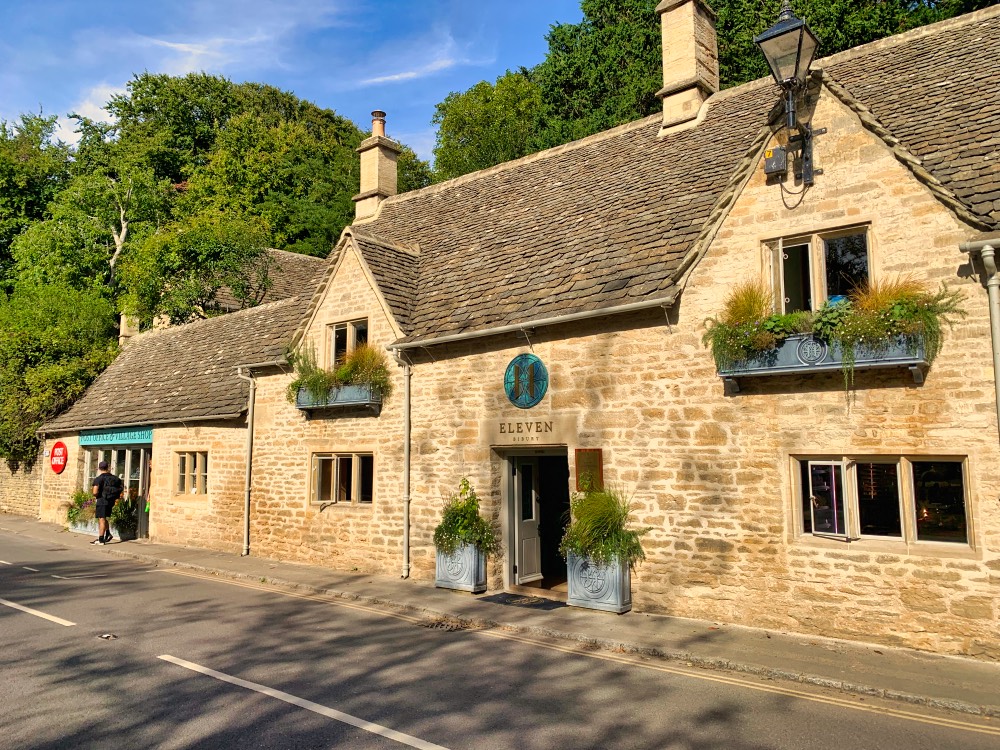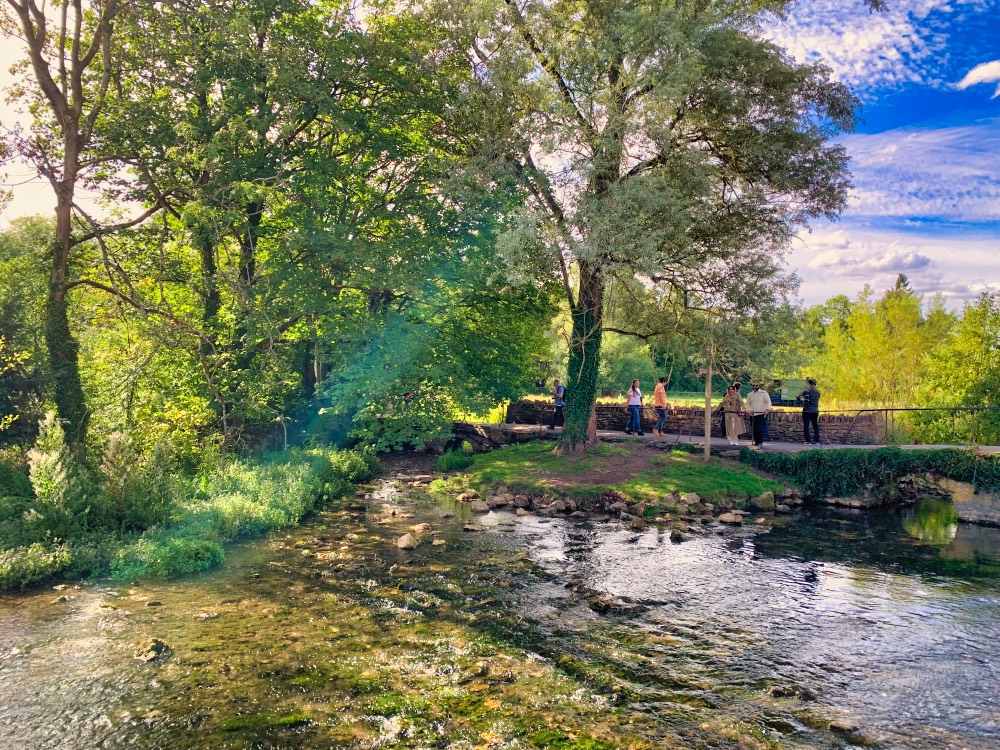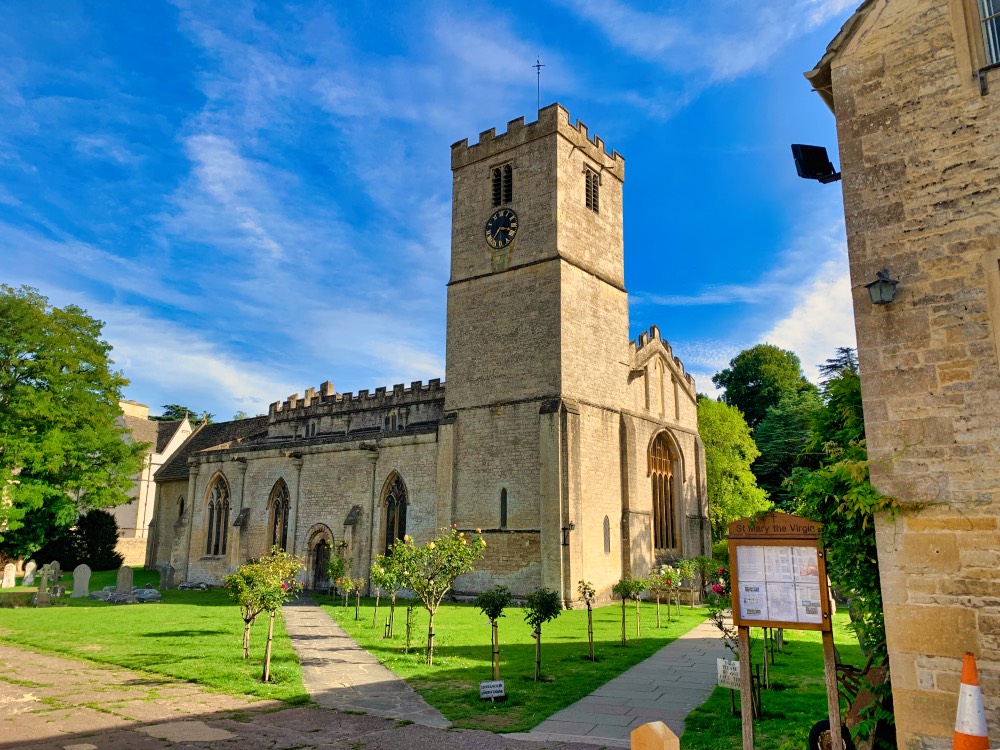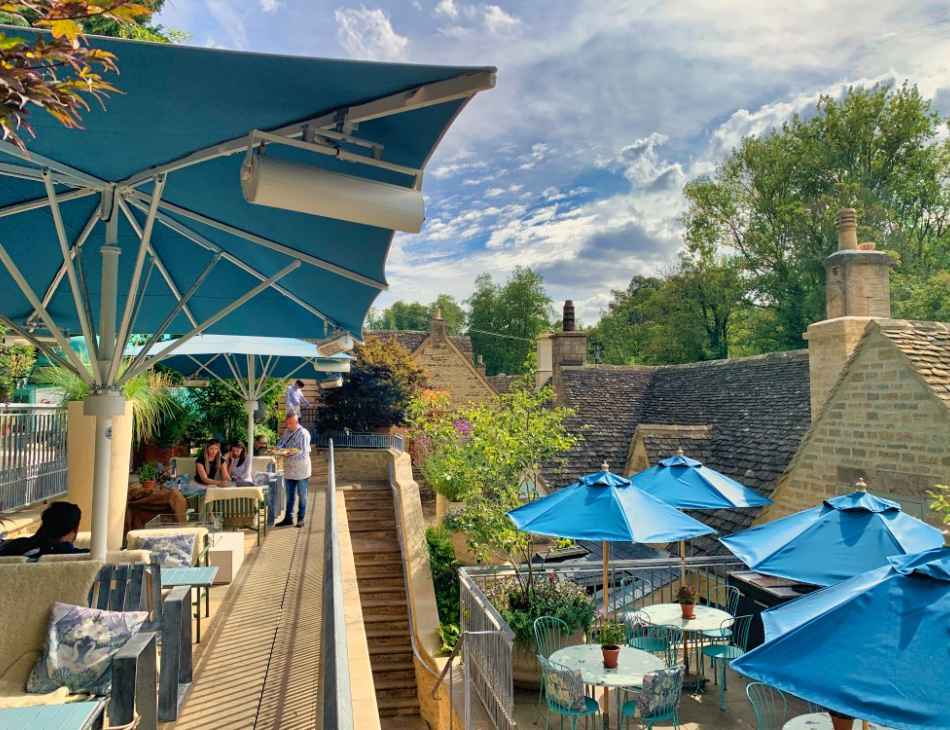Eleven Bibury Review– Where the Cotswolds Hides Its Secret Garden
Discover Eleven Bibury in the Cotswolds, where terrace dining meets artisan flavours and even the Ploughman’s feels like haute cuisine.
Eleven Bibury
Audi Q8 Cotswolds Tour
Gliding through the rolling hills of the Cotswolds in the supremely comfortable Audi Q8, one is lulled into a sense of pastoral ease—honeyed stone cottages, gently meandering rivers, and villages so pretty they look airbrushed.
There are places in England that appear so perfectly composed they seem almost fictional, as though lifted from a romantic novel or the backdrop to a period drama where everyone has implausibly good hair. Bibury, nestled along the meandering River Coln in the Cotswolds, is precisely such a place. William Morris himself, never a man to understate, famously called it “the most beautiful village in England.” He may have been guilty of many artistic exaggerations, but on this occasion he was entirely correct.
Arlington Row, with its 14th-century weavers’ cottages, has become the Instagram shorthand for English heritage—stone gables and mossy roofs leaning into each other as though conspiring against the tourists. Add to this St. Mary’s Church with its Norman tower, the Bibury Trout Farm teeming with silvery promise, and riverside walks that feel untouched by the modern world, and you have an idyll so complete it ought to come with its own warning label: “Caution: May cause yearning to relocate to the Cotswolds immediately.”
And yet, hidden among this picture-perfect scenery, behind a façade so discreet you could walk past without ever knowing, lies a different kind of treasure: Eleven Bibury.
Through the Looking Glass
To step into Eleven Bibury is rather like finding the back of the wardrobe and tumbling into a culinary Narnia. The project of Lady Anne Evans and the exuberantly flamboyant designer Laurence Llewelyn-Bowen, the space combines café, terrace restaurant, village shop, and gallery with aplomb. It’s a world where rustic Cotswold stone collides gracefully with contemporary chic, and where the design feels both stylish and entirely organic to its surroundings.
At street level, a deli greets you with shelves of delights—cheeses, cured meats, and the kind of artisanal treats that demand a wicker basket and a sunny lawn. To the left, a cosy lounge beckons with the promise of coffee and conversation. But it is upstairs, on the terrace, that Eleven Bibury reveals its true splendour.
Here, a series of three stepped terraces rise gently, bordered by grey cast-iron bannisters and populated with wrought-iron sofas and chairs softened by white sheepskin rugs. Ceramic-topped tables gleam in the filtered sunlight, shaded by vast teal-blue parasols that seem to have drifted in from the Amalfi Coast but graciously stayed on, recognising the superior company of Cotswold stone walls and slate rooftops. Above it all, trees sway lazily in the breeze, providing a natural canopy to this secluded eyrie.
A Menu Worth the Ascent
One does not simply perch on a terrace of this calibre without expecting food of equal stature. Chef Lee Ward, the culinary mind behind Eleven Bibury, has a simple philosophy: everything made fresh, on-site, and with as much flair as possible. A noble mission, one that he more than fulfils.
We began, as all civilised encounters should, with indulgent simplicity: a pork sausage roll and a Caprese salad. The sausage roll, gloriously golden and unapologetically hearty, felt like a handshake from the countryside itself. The Caprese, meanwhile, was a lesson in restraint—ripe tomatoes, fresh mozzarella, basil, and olive oil presented in such harmony one could almost hear Pavarotti warming up.
From there, the adventure widened into a spectrum of bowls and plates as colourful as the parasols overhead. The salmon poke bowl was a triumph of balance, fresh and light yet with enough substance to satisfy. The chicken salsa verde danced across the palate with zest, while the supporting cast of salads were nothing short of theatrical.
• The Big Green Bowl married tender sprouting broccoli, quinoa, baby spinach, Nocellara olives, chilli, golden sultanas, red onion, sunflower seeds, roasted squash, and a sherry dressing. It read like a manifesto for healthy living and tasted like a promise kept.
• The Paprika Roasted Squash Bowl with bulgur wheat, kale, radish, spring onion, and dried cherries was autumn in a dish—comforting yet bright.
• The Mixed Green Bowl brought spice and vigour with roasted chickpeas, heirloom tomatoes, cucumber, and crispy fava, proving that legumes can, in the right hands, be far more exciting than they sound at dinner parties.
There was also, on another table, a sharing charcuterie board that looked so enticing it drew glances normally reserved for celebrities. Laden with hand-raised pork pies, Kelmscott ham, Wookey Hole cave-aged cheddar, and crusty bread, it was the sort of platter that could start or end a friendship depending on how fairly it was shared. The Eleven Ploughman’s, too, was a thing of rustic magnificence—a reminder that sometimes the classics are classics for a reason.
Sweet Conclusions
Dessert, naturally, was not to be skipped. A cheesecake arrived, smooth and creamy, as though every dairy in Gloucestershire had conspired to create it. Alongside came a caramel brownie so rich it could have applied for non-dom tax status. Both disappeared in short order, though not without reverence.
To wash it all down, we eschewed the obvious wines in favour of Gusto organic soft drinks—an act of restraint, though one never regrets moderation when it tastes this good. Sicilian lemon with yuzu, Sicilian blood orange, and cola with herbal undertones were revelations, offering flavour combinations so subtle and refreshing they made the usual supermarket fizzy seem like a chemical accident.
The Little Luxuries
It is the details that elevate Eleven Bibury beyond the ordinary. At one end of the terrace sits an ice-cream bicycle, at the other a drinks cart—both playful, both practical, and both reminding you that dining should, above all, be fun. The furniture is elegant yet deeply comfortable, designed for lingering rather than perching. Service, led by our attentive host Adrian, was as swift as it was charming, with that rare knack of being present without intruding.
And lest you think Bibury is untouched by modern storytelling, it should be noted that parts of the film Stardust were shot here. If the village looks magical on screen, it is even more enchanting in person—though with Eleven Bibury at hand, one rather suspects the real fairy dust is sprinkled over the food
A Retreat from the Crowds
Bibury can, on occasion, groan under the weight of day-trippers eager to capture their perfect Arlington Row selfie. But Eleven Bibury offers a retreat from all that, a sanctuary above the village where one can eat superbly, sip luxuriously, and breathe deeply. Here, you are cocooned from the bustle, ensconced in a terrace where every detail—from the teal parasols to the cast-iron balustrades—has been chosen to complement the Cotswold stone and the surrounding beauty.
It is, quite simply, a place of respite, indulgence, and delight.
Eleven Bibury is a Cotswoldian mixmash. It is part deli, part café, part gallery, part terrace, and entirely an experience. Lee Ward’s food is fresh, inventive, and deeply satisfying, striking that enviable balance between nourishment and indulgence. The setting is unmatched—a hidden aerie above one of England’s most beautiful villages, yet one that feels worlds away from the tourist throng below.
Service is exemplary, the design inspired, and the atmosphere imbued with a sense of occasion that makes even lunch feel like a celebration. Whether you are a local Cotswold dweller, a London weekender seeking a countryside escape, or a traveller with a taste for the finer side of life, Eleven Bibury is not to be missed.
Satiated and slightly smug, we descended from the terrace, past the deli temptations, and back into the Cotswold sunlight. Waiting patiently at the kerb was the Audi Q8, looking every bit as composed and sculptural as the Arlington Row cottages across the way. Sliding back into its leather embrace after such a lunch felt like the perfect coda—modern luxury carrying us effortlessly from England’s most beautiful village, with just enough horsepower to outrun the tourists.

